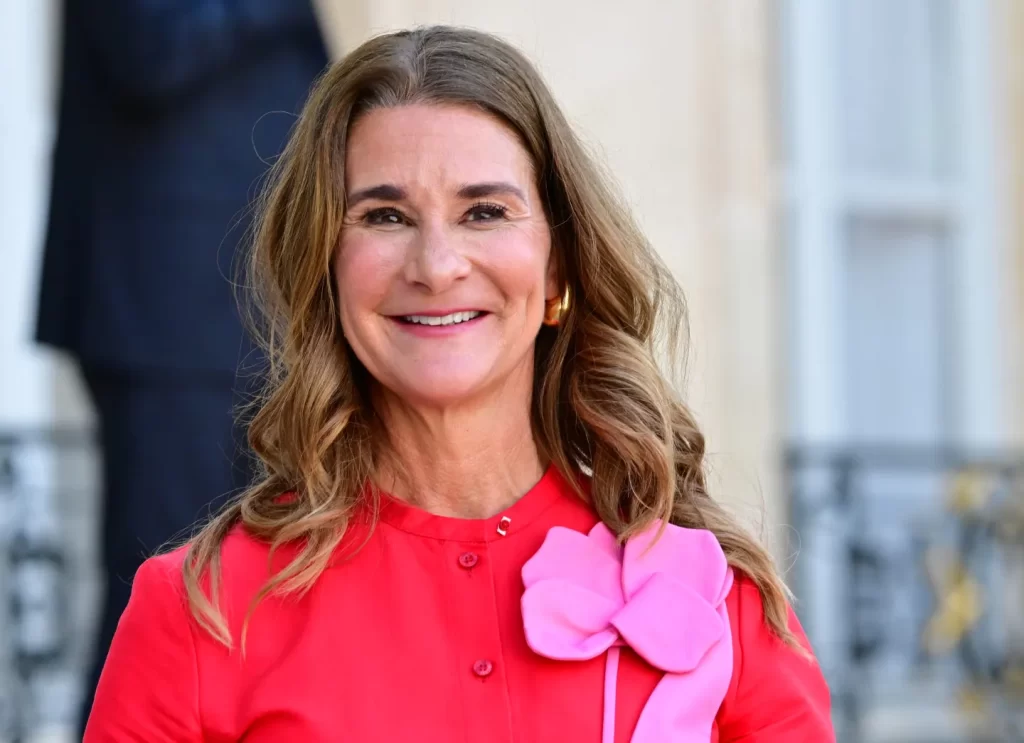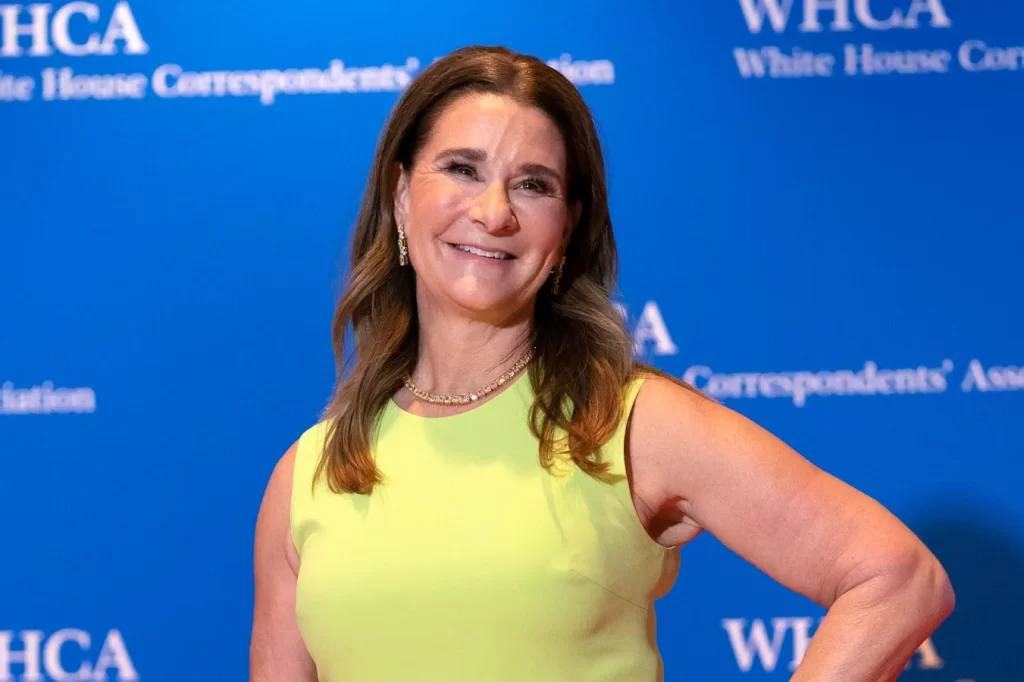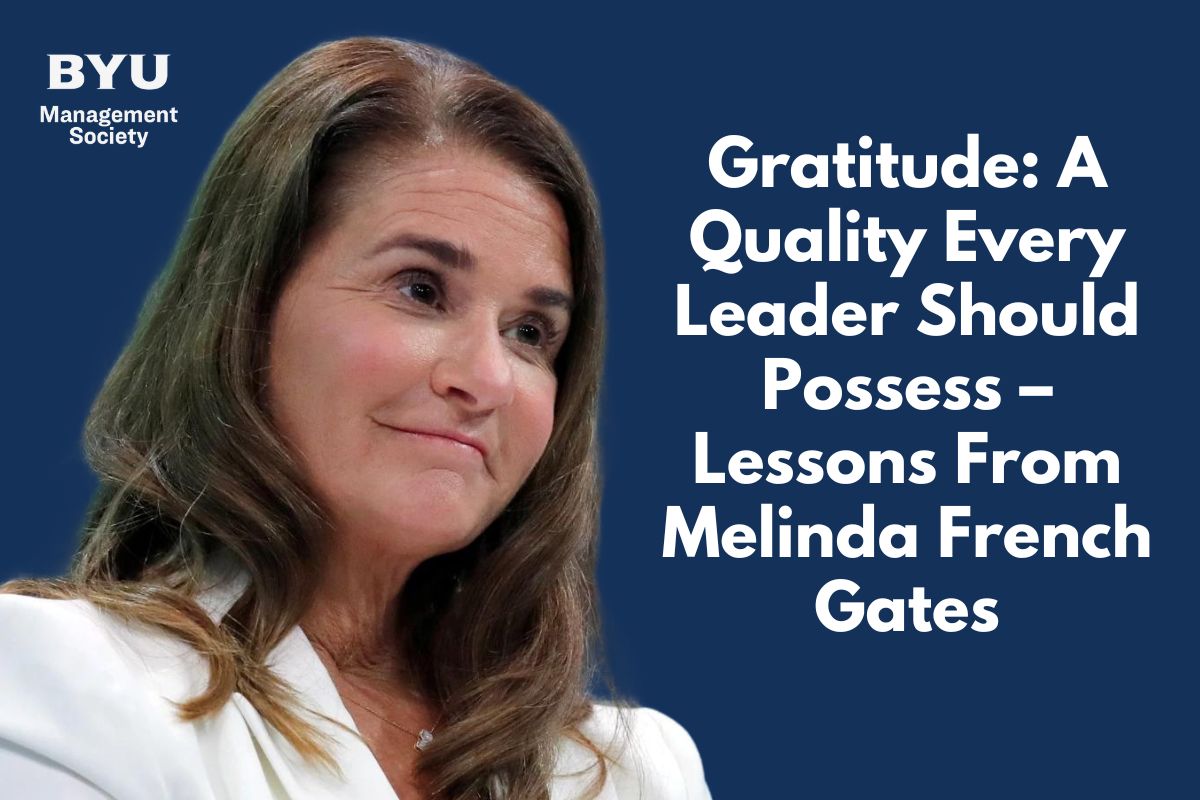Melinda French Gates, co-founder of the Bill and Melinda Gates Foundation, has long been an influential figure in philanthropy. After her highly publicized divorce from Bill Gates, many speculated about how this would impact their shared charitable endeavors. What emerged from this personal and professional shift was not just a story of separation but a powerful lesson in leadership, humility, and, most importantly, gratitude.
Melinda’s decision to step away from the Gates Foundation, a philanthropic giant she co-built over 25 years, signals much more than a career change—it’s a masterclass in grace and leadership during times of immense transition. She may be leaving one of the most influential foundations in the world, but her departure offers profound lessons for leaders everywhere, especially about the importance of gratitude.
Table of Contents
- The Gates Foundation: A Legacy of Impact
- A Graceful Exit and New Beginnings
- Lessons in Gratitude from Melinda French Gates
- Cultivating Gratitude in Leadership
- Related Content
The Gates Foundation: A Legacy of Impact
The Bill and Melinda Gates Foundation, founded in 2000, is renowned as one of the largest private charitable foundations in the world. Its mission spans from combating global health crises to addressing inequality and poverty. Together, the Gateses have donated billions of dollars to causes shaping the future of education, health, and economic empowerment worldwide.

In light of such a vast and influential legacy, Melinda’s decision to exit the foundation, while surprising, also speaks to her broader vision. What is particularly striking is how she has chosen to exit—with dignity, a continued commitment to social good, and, most notably, gratitude for what she has helped build.
Melinda Gate sent this note to her colleagues as she was wrapping up all her work at the foundation:
“Before I wrap up my last day at the foundation, I wanted to reach out to thank each one of you for the role you played in my time here and for all the work we did together.
Melissa Gates – InC Magazine
As you might imagine, I’m holding a complicated mix of emotions today. I’m sad to be saying goodbye, proud of all we accomplished, energized by what’s ahead, and excited to see what you do next. But the emotion I feel most strongly right now is gratitude.”
A Graceful Exit and New Beginnings
Melinda French Gates will not go away empty-handed; she will receive $12.5 billion, which she plans to allocate toward her philanthropic endeavors, with a particular focus on advancing gender equality and empowering women around the world.
While she could have stayed at the Gates Foundation, maintaining her influence in the organization she helped create, she chose to start anew—a bold decision that carries profound lessons in leadership.
Her exit from the foundation could easily have been marked by bitterness or division, as in high-profile separations.
Yet, Melinda’s departure was anything but cruel. She acknowledged the foundation’s remarkable work and its incredible impact. Still, she also recognized her desire to focus more intently on causes close to her heart—particularly those affecting women and marginalized communities. Her grace and humility throughout this transition serve as a model for leaders everywhere.

Lessons in Gratitude from Melinda French Gates
At the core of Melinda’s leadership journey is the principle of gratitude. In her public statements, Melinda has consistently expressed gratitude for her opportunities to work alongside brilliant people, effect meaningful change, and improve millions of lives globally.
But her gratitude doesn’t stop at her professional successes—it extends to her personal life, even in moments of profound difficulty, like her divorce.
Leaders often get caught up in the drive to achieve, push forward, and overcome obstacles. It’s easy to lose sight of gratitude’s role in our personal and professional growth. Melinda’s example reminds us that gratitude is not just an emotion to feel when things are going well—it’s a mindset that can guide us through the most demanding challenges and help us emerge more assertive on the other side.
As Pres Nelson so eloquently pointed out when he said:
“Counting our blessings is far better than recounting our problems. No matter our situation, showing gratitude for our privileges is a unique, fast-acting, and long-lasting spiritual prescription.”
Pres. Russell M Nelson
From President Russell M. Nelson, we learn that gratitude goes beyond simply recognizing our blessings; it is about our ability to see and appreciate them, regardless of our circumstances. In life, we each have the choice to focus on our blessings and embrace an attitude of gratitude.
So, what can leaders learn from Melinda French Gates, and how did she handle this situation? What can we learn about gratitude?
1. Gratitude in Times of Change
One of the most striking aspects of Melinda’s departure from the Gates Foundation is how she embraced gratitude even amid significant change. Change can be incredibly destabilizing, especially when it’s unexpected or challenging.
For many, it can lead to fear, uncertainty, and resentment. However, Melinda demonstrated that even during periods of great upheaval, it is possible to reflect on the positives, recognize the opportunities that lie ahead, and express gratitude for what has been.
For leaders, this is a crucial lesson. Change is inevitable, whether it’s a shift in organizational structure, losing a key team member, or even a personal crisis. How we approach these moments—whether with fear or gratitude—can shape the outcome.
Leaders who express gratitude during times of change are better able to inspire confidence in their teams and to find new paths forward.
2. Gratitude for Opportunities
Throughout her career, Melinda has often discussed the privilege and responsibility that come with access to resources and influence.
Rather than taking these for granted, she consistently expressed gratitude for her opportunities to make a difference. This mindset has allowed her to remain focused on her mission, even as her circumstances have evolved.
In the world of leadership, it’s easy to get caught up in the pursuit of success and overlook the opportunities that have brought us to where we are. Leaders who cultivate a sense of gratitude for the opportunities they’ve been given—whether it’s a chance to lead a project, mentor a team, or take on a new challenge—are more likely to remain humble, focused, and driven by purpose.
3. Gratitude for the People Around You
Another key lesson from Melinda’s journey is the importance of gratitude for those who support and work alongside us. In her public statements about the Gates Foundation, Melinda has frequently acknowledged the incredible team of people who have helped make the foundation’s work possible. She has never claimed sole credit for its success, always emphasizing the collective effort that drives impactful change.
As leaders, we must remember that our successes are rarely achieved alone. The people around us—our teams, colleagues, mentors, and even competitors—play an essential role in our growth and development.
By expressing gratitude for those who support us, we strengthen our relationships and create a culture of appreciation and respect that can foster greater collaboration and innovation.
4. Gratitude in Difficult Times
Perhaps the most powerful lesson from Melinda’s experience is the importance of gratitude in the face of adversity.
Divorce is, by all accounts, one of the most challenging and emotionally complex experiences a person can have. Yet Melinda has approached this personal challenge with a remarkable sense of grace and gratitude.
It’s easy to feel grateful when things are going well, but it’s much more complicated when facing difficult circumstances. However, leaders who can find gratitude in even the most trying times are better equipped to navigate adversity and emerge from it with greater resilience and perspective.

Cultivating Gratitude in Leadership
As we reflect on Melinda French Gates’ journey, it’s clear that gratitude is more than a nice-to-have quality—it’s a fundamental aspect of effective leadership. So, how can we cultivate gratitude in our leadership practices?
Make Time For Reflection:
Regularly assess the opportunities, people, and experiences that have shaped your leadership journey. Acknowledging these can help you maintain a sense of humility and purpose.
Express Appreciation:
Don’t wait for special occasions to thank those around you. Make a habit of expressing gratitude to your team, mentors, and competitors. A little appreciation can go a long way in fostering strong relationships.
Find The Silver Lining:
When faced with challenges or setbacks, look for the lessons or opportunities hidden within. Cultivating a mindset of gratitude in difficult times can help you stay focused on the bigger picture.
Lead With Empathy:
Gratitude and empathy often go hand in hand. You can lead with greater understanding and compassion by putting yourself in others’ shoes and recognizing their contributions.
Count Your Blessings
Regardless of our circumstances or challenges, we can all learn to recognize our many blessings. As we do so, we will cultivate an attitude of gratitude.
Melinda French Gates’ story is about resilience, transformation, and, most importantly, gratitude. Her ability to navigate immense personal and professional changes with grace and humility is a powerful reminder of gratitude’s role in leadership.
By embracing gratitude in times of triumph and adversity, we can become more effective, compassionate, and resilient leaders—qualities that are essential for creating lasting, meaningful change.
In a world that often celebrates individual achievement and success, Melinda’s journey reminds us that authentic leadership is not just about what we accomplish but how we carry ourselves along the way. Every leader should have gratitude at the heart of that journey.
At the Brigham Young University Management Society, one of our focuses is on moral and ethical leadership. For moral and ethical leadership, we strive to help build servant leaders worldwide. We understand that organizations worldwide would be better if more servant leaders existed.
To find a chapter near you, check out the BYU Management Society website by clicking here.
Check out our YouTube Channel by clicking here.
Please help us build leaders, change lives, and make a difference by giving now. You can learn more about how to give to BYU MS Asia by clicking here.
Related Content
What is the BYU Management Society?
The BYU Management Society is a business, professional network, and career development program whose primary focus is to help grow moral and ethical leadership worldwide. It also helps support the local communities where the BYU Management is organized and operating. The organization is open to all.
You can discover more by reading What is the BYU Management Society by clicking here.
BYU Management Society, Moral and Ethical Leadership
The BYU Management Society can help you improve your business and career development. Society helps you network with like-minded individuals while allowing you to help and mentor the younger generation. You can help grow moral and ethical leadership worldwide while staying in touch with Brigham Young University.
You can discover more by reading BYU Management Society, Moral and Ethical Leadership by clicking here.
BYU Management Society – Building Up Chapters
I have been working with our Area BYU MS chapters to review their progress over the last few months. Our goal for the area is to have as many chapters of award-winning excellence chapters as possible.
In doing my training with the chapters, I started to look at things that helped build up a BYU Management Society Chapter and came up with four keywords: Inclusive, Invite, communicate and meet. As BYU Management Society is an organization with programs to help people help themselves, the chapters must understand how to build up a BYU MS Chapter.
You can discover more by reading BYU Management Society – Building Up Chapters by clicking here.
- Jia Kit Lew of One Ice Cream Wins 3rd Place in “The Great Idea” Category at BYU MS Asia Business Plan Competition 2024 in Singapore – April 15, 2025
- Ohana Paradise: Winner of the Great Idea Category in BYU MS Asia Business Plan Competition 2024, Singapore – March 18, 2025
- Kevin Tran: Leading with Purpose and Passion – March 18, 2025
